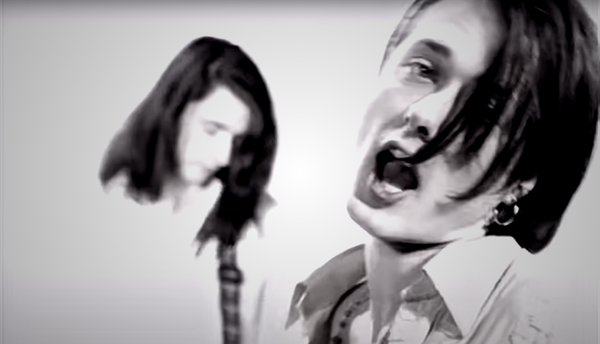Little Trouble Girls
In its focus on the spirit and the flesh, the film feels as timeless as Black Narcissus or Picnic at Hanging Rock.

Directed by Urška Djukić
Starring: Jara Sofija Ostan, Mina Švajger, Saša Tabaković
Released 29 August
9/10
From its title alone (borrowed from the second single from Sonic Youth’s 1995 Washing Machine), you might imagine Little Trouble Girls, the debut feature from director Urška Djukić, to be some grungey, Girl Interrupted style investigation into 21st century teenage mental health. What you might not expect is the story of budding friendships in a Slovenian girls choir on a singing retreat at a convent in the countryside of Udine. The gap between Kims Deal and Gordon’s Shangri Las in Hell harmonies (which shows up in the final shot) and the unearthly Slovenian folksongs feels as vast as the picturesque ravine at the heart of this film.
But both song and film are about the power, confusion and repression of young girls coming of age. A fruitful comparison might be with Céline Sciamma’s Girlhood (2014), except instead of Parisian girl gangs and Rihanna, Djukić works with Slovenian altos and Bach motets. But it’s not in the slightest bit precious: the film begins with an intense close up of a medieval painting of Christ’s wound, looking for all the world like a psychedelic vulva. The image is just one object of fascination for Lucia (the remarkable Jara Sofija Ostan), a dreamy, distracted 16 year old, still awaiting her first period, but finding her senses supernaturally, hormonally aroused - her ears blissed out on ancient polyphony, her eyes dazzled by the glimpse of a friend’s belly button, her lips scandalised by the sensation of lipstick, her mouth drunk on the taste of bitter grapes.
Things escalate when the girls decamp to the convent, away from the forbidding rules of their parents. Lucia is both thrilled and bewildered by her growing friendship with Ana Maria (Mina Švajger, also superb), a wild and free spirit who scorns Catholic doctrine. But when a game of truth of dare tells her to passionately kiss the hottest girl in school, still finds herself smooching the convent’s icon of the Virgin Mary.
Mobile phones play a crucial role in the plot - Lucia finds herself snapping a naked construction worker, bathing in the river Natisone, and sharing the image with her choirmates - but in its profound focus on the spirit and the flesh, the film feels as timeless as Black Narcissus, Picnic at Hanging Rock or, another Sciamma, Portrait of a Lady on Fire. Those are rarified comparisons, but there’s an intensity to this film that suggests that Djukić could approach these heights.




